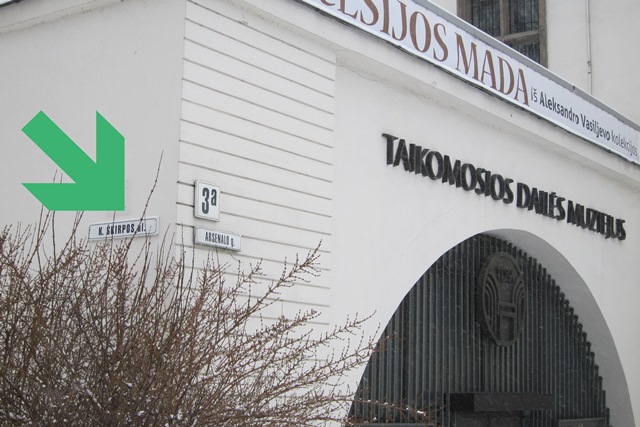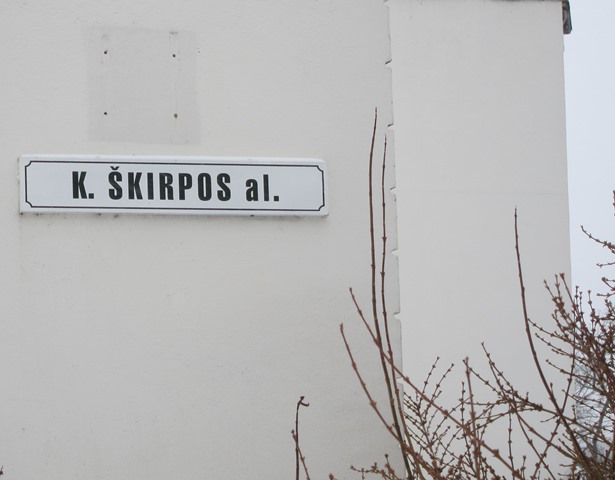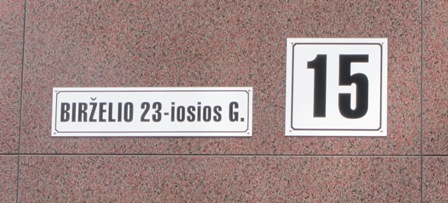O P I N I O N
The Defending History community welcomes today’s news that a street (and/or square) in the Verkiai district, Vilnius’s northernmost neighborhood (and popularly considered to be just north of the city), may be named for Ona Šimaitė, the enormously courageous librarian who defied the Nazis and their local collaborators by risking her life to save Jewish citizens of the country. But this is a confusing signal that can easily be construed to send the wrong message. Her street deserves to be right in the city center! Šimaitė’s life has recently come to new and deserved attention thanks to Julia Sukys’s important recent book, Epistolophilia: Writing the Life of Ona Simaite.
RELATED:
MORE STREETS, PLAQUES AND MONUMENTS HONORING HOLOCAUST COLLABORATORS
MUSEUM THAT HONORS PERPETRATORS
“PEACE PARK” THAT HONORS PERPETRATORS
INTERNATIONAL PETITION
While offering praise for this important decision, it is necessary to highlight that it simultaneously underscores the need for reevaluation of a parallel and inverse issue that cannot be shirked or knocked off the agenda.
That issue is the persistence of current street names and honors in the capital (and elewhere) dedicated to Nazi perpetrators and collaborators in today’s EU and NATO environments. Some examples are provided on our anthology page of images on the subject.
Why Verkiai to the north when a city center street needs renaming right now?
Incredibly, even the capital city Vilnius still has street names and plaques honoring collaborators. One, photographed this week in the city’s central area, is one of the two street names forming the corner occupied by the prestigious Museum of Applied Art (itself always worth a visit).

Kazys Škirpa, in Berlin with Nazi headquarters at the time of the Nazi invasion of 22 June 1941 had been slated to be the Nazi puppet prime minister of Lithuania, but was in the event not permitted to head home to lead a so-called provisional government (that role was played by Juozas Ambrazevičius, the later Brazaitis). Instead, Škirpa made do with radio addresses containing vicious antisemitic invective that helped spur on some of his countrymen to engage in acts of violence and murder against Jewish neighbors, innocent citizens of his country, even before the arrival or the setting up of administrations by the German occupiers.
Even Timothy Snyder’s Bloodlands, criticized in some quarters for downplaying East European and particularly Baltic participation in the Holocaust, deemed Škirpa salient enough to mention by name:
“The Lithuanian diplomat Kazys Škirpa […] used this suffering in his radio broadcasts to spur mobs to murder. Some 2,500 Jews were killed by Lithuanians in bloody pogroms in early July [1941].”
Timothy Snyder, Bloodands (2010), p. 192
Some historians would take issue with Snyder’s numbers and the omission of the week of 23 June but that is all another matter. One obvious point of moral consensus should be that the time to take down the street name in central Vilnius named for this Holocaust collaborator is now. One easy way to make a clear moral statement is to replace Škirpa with Šimaitė on the street by the museum. But is the will there?
 ◊
◊
Another Vilnius street name honors June 23rd, the day the Holocaust broke out in Lithuania in dozens of locations (most infamously, Kaunas), before arrival of the first German soldiers. The ultranationalist narrative claiming it a noble rebellion is curious, as the Soviets were fleeing the Nazis’ Operation Babarossa…
